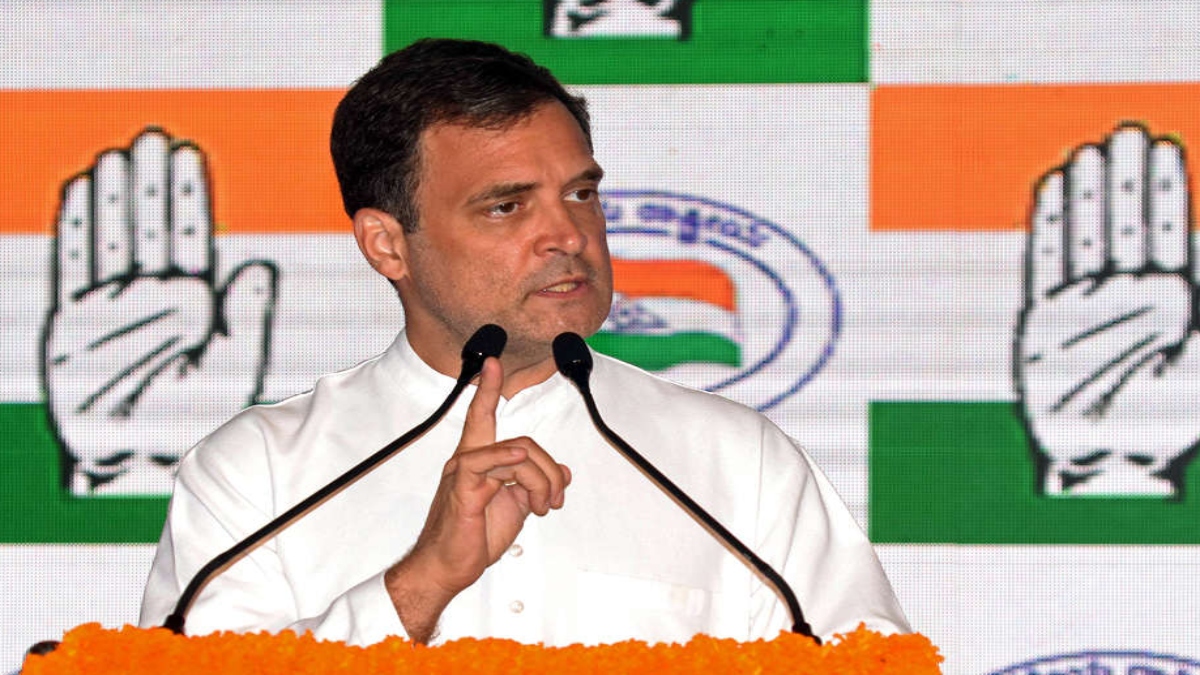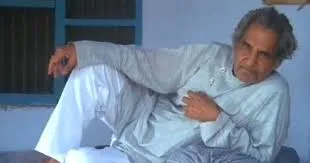The image of sacrifice has to be real and measurable to gain public support. Such as image does not work if it comes due to necessity forced by circumstances. Image of Modi as a karmayogi who has not allowed family or close relatives to influence his politics or them benefitting from his power is based on verifiable facts. The same cannot be said about Rahul Gandhi who is yet to understand what society appreciates.
Rahul Gandhi claims he is not power-hungry despite being born in a powerful political family but he is upset that Ms Mayawati did not agree to an alliance with the Congress in Uttar Pradesh. He is trying to bring together anti-RSS and anti-Modi forces but does not want power. He claims to be working to save the country and wants people to accept his assertions. But he is yet to dispel the accusations that Mr Gandhi is not serious about politics.
His statements reflect the same postulate that many senior Congress leaders had tried to push forward when Mrs Sonia Gandhi abdicated the throne of Delhi in favour of Dr Manmohan Singh in 2004. The Congress tried to project it as a sacrifice which actually came under pressure from all corners that a foreign-born cannot become the Prime Minister of the country.
The claim of sacrifice would get punctured by the very fact that Mrs Sonia Gandhi in 1999 actually staked claims on the basis that she would get the support of 272 MPs in two days when she met then President of India, late KR Narayanan. Her claim fell to the ground when Samajwadi Party leader Mulayam Singh Yadav refused to give support to his 20 Lok Sabha members.
Her courtiers have claimed that she wanted Dr Manmohan Singh to become the PM in 1999. In that case, she could have declared him to be the leader and things would have been much easier for Congress. Finding virtues in necessity is the old Congress game.
Rahul Gandhi claims that he is in politics because he wants to save the country and its institutions. He wants to understand society and figure out why there is social discrimination. There is no doubt that he badly needs some lessons in sociology. When there was time to learn about society, he was busy somewhere else. There is no harm in learning anytime since life is all about the perpetual acquisition of knowledge.
It would do him good if he reads the person he quotes from. Dr BR Ambedkar’s book “Who Were the Shudras” brilliantly reflects on the caste phenomenon and how Shudras came to be associated with untouchability. Rather than trying to get history lessons from his young friends from JNU with set agenda and distorted history, he should read from the original texts. He would also come to know that Dr Ambedkar rejected the Aryan invasion theory, something which the British pushed and this was adopted by the Left and Islamists to justify invasions of India.
When Mahatma Gandhi came to India from South Africa in 1915, his political guru Gopal Krishna Gokhale wanted him to tour the country and understand the people and the country before he set upon any agitation or movement against the British. Gandhi was away for far too many years and Gokhale wanted him to understand that India was not South Africa and a separate strategy needed to be evolved.
Any person aspiring to lead the country must know his people. When Mahatma Gandhi realized that poor person were hungry and half-clad, he started wearing only one cloth. Realization must bring transformation otherwise articulation of realization would only be taken as a political tool for projection of what one is not.
Why should his yearning for knowledge end up spewing hatred against the RSS, Modi and the BJP? Or, is it that the complete domination of Indian politics today by the nationalist ideology has isolated the Congress so much that it does not see the hope of revival? In such a situation, normally people talk of learning, knowledge, or sabbatical.
While Rahul Gandhi can go on criticizing Prime Minister Narendra Modi and the RSS, he must know what he is up against. Modi is a man from the masses. A person who has worked his way up after years of struggle. He does not need sociological studies to know the state of his people. The drama which he directed and acted in during childhood “Pilo Phool” encapsulated the pangs of a Dalit lady who could not get a yellow flower from the temple that could cure her son. The reason was untouchability debarred her from entering the temple.
If Modi announced free rations for 80 crore poor people, this shows he knows that their lives would be tough and the Government must intervene to save them in crisis. It is not without reason that his priority has been to deliver government benefits directly into the hands of the beneficiaries without any pilferage. A recent IMF study paper has lauded the free ration scheme of the Modi Government in alleviating the plight of the poor people during the Pandemic.
As far as the RSS is concerned, an organization does not grow unless it has merits in its ideology. It has more than 50,000 shakhas spread across the country and members of the shakhas are inspired by the zeal to make India a strong country on the basis of Indic values.
Its octopus-like existence has ensured that wherever there is a need for service to humanity one would find an organization affiliated with the RSS. It is doing yeoman’s service in education in tribal and poor localities, particularly among the Scheduled Castes and Tribes.
To fight such an organization and ideology is not an easy task and the strategy definitely cannot be acquired through academic studies. The Congress had devised the formation of a cadre system in the form of Congress Seva Dal but this has become almost defunct. This is because it does not have an ideological spine to sustain any movement.
Rahul Gandhi’s present call for all parties or forces opposed to Modi to come together on the platform is yet another attempt at venting out frustrations. Venting out at Ms Mayawati for not aligning with the Congress is a sad commentary on the disillusionment in the Congress. Rahul Gandhi is blaming her rather than admitting to his failures to strengthen the Congress.
Even if there are parties opposed to the BJP and Modi, what would be the basis of their coming together. What is the alternative they give to the country? How would they tackle the impression that it is the ganging of the casteist and corrupt forces? Modi-phobia may drive them to join hands but in absence of a programmatic unity, they would never be able to emerge as the alternative.
Their nightmare is the Modi Government is doing perfectly well. The development indicators are showing up in terms of faster transport movement and economic growth. More medical colleges, more IITs and AIIMS, and more facilities for better education and health services are redefining the country’s priorities.
The strength of India as military power has been seen in surgical strikes in Pakistan, face-off with China and the country’s nuanced stand on Ukraine. Defence indigenization is taking place in a big way and India is fast emerging as an exporter of defence equipment.
Economically the country is doing well despite two bad years due to the Covid-19 pandemic and now due to Russia’s Ukraine war. Both the events have a worldwide impact and by all indicators, India is doing well. There is no disruption but only hiccups. The all-time high collection of GST shows economic activities have been picking up fast.
Public mood was reflected largely during the recent assembly elections. Barring Punjab, where the BJP does not have an enviable organizational presence, the party did well in Uttar Pradesh, Uttarakhand, Goa and Manipur. In such a positive atmosphere nothing is going to work for Congress or other opposition parties.
The parties or leaders may come together. Survival instincts would force foes to become friends. But this would not translate into the coming together of people. This is because people have developed stakes in continuation of the Modi Government. Political movements would not sustain because people by and large understand that the Government is trying to sincerely battle against the odds and provide solutions.
The writer is the author of “Narendra Modi: the GameChanger”. A former journalist, he is a member of BJP’s media relations department and represents the party as spokesperson while participating in television debates. The views expressed are personal.
Rahul Gandhi claims that he is in politics because he wants to save the country and its institutions. He wants to understand society and figure out why there is social discrimination. There is no doubt that he badly needs some lessons in sociology. When there was time to learn about society, he was busy somewhere else. There is no harm in learning anytime since life is all about the perpetual acquisition of knowledge.










